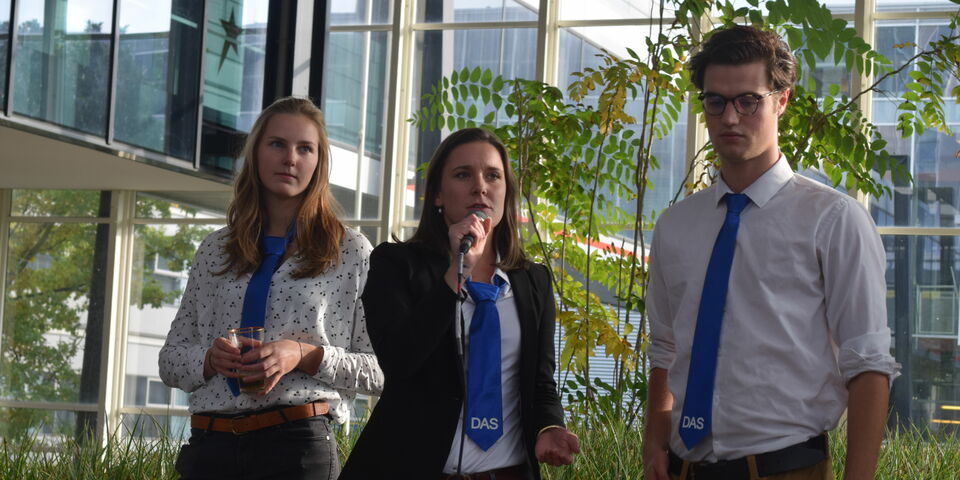Newcomer DAS starts to find its feet after startup problems
After having a few ‘startup problems’, the new student party DAS has now worked up a couple of ideas for reaching its goal; i.e. wanting to be there for the ambitious student and making this happen. The Eindhoven Student Council and Groep-één would have liked to have seen newcomer DAS focus more on its work for the University Council in general instead of specifically looking to achieve its own party program. In the meantime they have seen improvements.
For the first few weeks it was pretty challenging, admits DAS parliamentary group leader Pauline Offeringa, Master's student at Chemical Engineering. Together with Judith te Selle (Bachelor's of Sustainable Innovation) she represents DAS on the University Council. “It takes more time than we had expected, especially having to go through all the dossiers in detail. So we have decided to take a more selective approach. If, say, a matter concerns personnel, then we sometimes leave it to the staff faction. It also makes a difference that now the processes are more streamlined and it is clearer what each committee is supposed to be doing.”
From the outset, DAS Eindhoven has sent a clear message that it is working for ‘the (De) Ambitious Student’- which appropriately is also the party's full name. And they mean 'ambitious' in the broad sense of the word; think of committee and board work, as well as participating in elite sport or setting up a company.
DAS has since made contact with various study and student associations. Fenno van den Eijnde, one of the three members of the party's board: “We are keen to act as a mouthpiece. In addition, when we meet students to discuss a particular subject we'd also like to raise other matters with them. It isn't practical to plan a discussion about the Program and Examination Regulations (OER), most students wouldn't be interested. But if you are already in discussion, you can turn to a subject like this. It's not something they have a vested interest in, but it does at least keep them abreast of what's happening.”
On behalf of DAS, four students are now looking into how study programs reward extracurricular activities. “It varies from program to program. Some students are getting credits for, say, committee work and others are not. We want to see activities being rewarded in the same way across the board.”
More harmonization
According to Erik van Heijst of Groep-één, DAS started looking to move forward on issues like this in its own party program too soon, which gave the impression that the party's work for the University Council - where other subjects are addressed - was not their first priority. “Before they took their seat on the Council, we hadn't seen them in the public gallery at University Council meetings. This led us to believe that they were insufficiently prepared for the reality of council work. As council work actually takes up a lot of time, especially when you've only got two people, the scheduling for council work got tangled up with the amount of time being spent on the party program. But we are now seeing an improvement.” The evaluation held recently by the three factions certainly helped bring about this improvement, according to Van Heijst.
Van Heijst also observes that it is not always practical having three parties. "I have the feeling that now that we have three student parties we are sometimes less effective, because we have to harmonize more political agendas. With two factions it was easier to discuss matters, especially when a dispute arose."
The ESR's experience has been similar, but also sees some positive aspects. Political party leader Eva Hanckmann: “A new party brings a fresh approach to certain subjects and that can be positive. It keeps all the factions on their toes. And we are also noticing that as student factions we are having to work together more, because both Groep-één and ESR have one less seat.”


Discussion